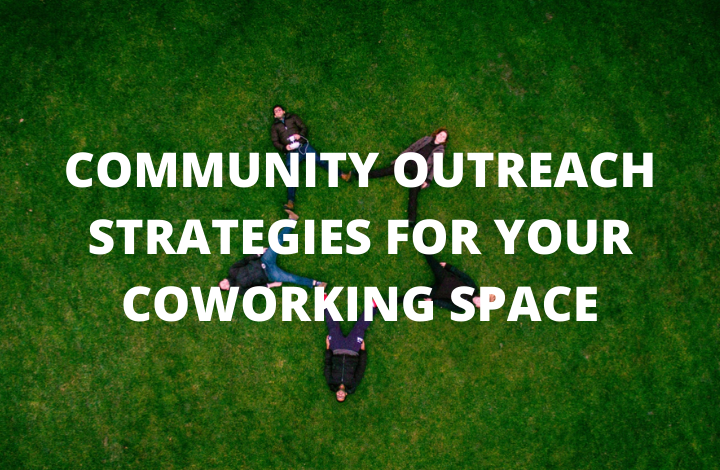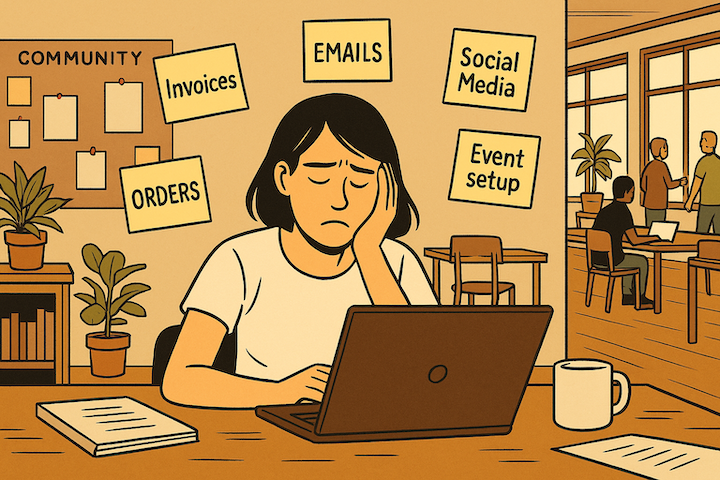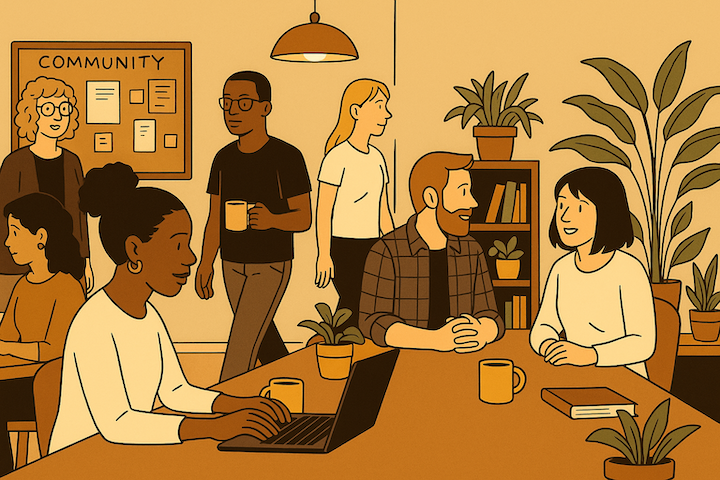It’s hard to imagine there are people who don’t know what coworking is.
For those of us who talk about coworking all day every day and have witnessed its growth from a small movement into a global industry, it seems like shared workspace is all the rage across numerous sectors.
And it is.
But what about the people who actually join coworking spaces? Are they inundated with news about the industry’s growth and projections? Are they swimming in information about how valuable coworking can be? Are they watching with amazement all the virtual coworking projects popping up? Are they regularly served up insider tips for launching and growing a company in a shared space?
Not so much.
Your target market is likely sitting at their kitchen table or makeshift home office right now, wondering how they’re going to get through another week of working from home and how long they have to keep doing it.
Your job is to get in front of those people and show them how amazing your space and community are—to convince them that the value they’ll get from becoming a member far outweighs the membership fee.
Your job is to educate them about coworking.
One of the best ways to do that is through community outreach. By leveraging the reach of aligned organizations in your town, you amplify your own marketing message exponentially.
A potential member may not be Googling around for the phrase “dedicated desk in Santa Fe,” but they very may well be searching for resources for small businesses, mentors for entrepreneurs, meetups for developers etc.
Here are 11 community outreach strategies to harness the power of your local resources to attract your target market.
1. Small Business Development Center (SBDC)
Your local SBDC likely aligns nicely with your coworking market. SBDC offers support to small business owners, including help securing loans. They may also offer programming, content events and mentors. Align yourself closely with this organization and find ways to partner throughout the year.
2. Downtown Association
If you’re in a downtown location, your local association may offer deals and host events. You can leverage these to get the word out about your space and invite people in for tours. Downtown associations also provide networking opportunities to connect with your neighbors. These may lead to partnerships, sponsorships or joint marketing efforts.
3. Neighborhood Business Organization
Your neighborhood business organization may have a newsletter, blog or publication. These are nice platforms to tell the story of your space and community and educate your neighbors about coworking and your offerings. As with the downtown association, neighborhood business organizations also help you grow your local network of business owners.
4. Meetup Communities
While most in-person gatherings are on-hold, plenty of meetup groups have switched to virtual gatherings. Research the meetups in your town to find those aligned with your market. Here are some good places to start: tech meetups, women in business meetups, startup founder meetups, entrepreneur meetups, designer meetups, developer meetups, marketer meetups, writer meetups, home-based business meetups, women in tech meetups, attorney meetups, retired professionals meetups etc.
5. Think Local First
If you have an organization that promotes spending money locally, see what they offer, how you can contribute, and how you can grow your network and coworking community through joining.
6. Local Hotels and Visitor Organizations
Consider partnering with local hotels and visitor organizations to become their go-to coworking space, dedicated desk and meeting room facility. Particularly if you offer short-term coworking, desk rental and day offices, you can help travelers stay productive and give a value-add to the hotel and organizations by offering discounted rates for their guests.
7. Local Libraries
Countless people work out of libraries. Freelancers, startups, solopreneurs and more use the wifi, meeting space and reference librarians to launch and grow businesses. Offering programming, expertise and even sponsored coworking days positions your space as the go-to when someone is ready to level-up their business. When they need office space, team meeting areas, dedicated desk and more business amenities, you’re their top-of-mind place. Don’t forget about programming for teens and young people. They’re your future members.
8. Arts & Culture Organizations
Your town likely has a variety of arts and culture organizations and programming. Tap into these organizations to contribute resources, to provide workshops around the business of art, to express your company values and mission, to grow your community, to bring local art and events into your space, to position your space as the local networking hub and to connect with a community of entrepreneurs who can support your members with team photography, headshots, original art and design, merch, signage, decor etc.
9. Teacher Networks
Teachers need a place to teach remotely, record lectures, meet with parents etc. You need to fill meeting rooms and media booths. Tap into teacher networks to offer your support and a solution to some of their challenges.
10. Parent Resources
There are likely numerous local resources for parents in your town, including publications, organizations and online groups. Offer to write a guest post with a smart call to action, provide a free resource or training, give a discount for homeschooling parents who need space, and help them create a workable remote learning setup. Determine the immediate needs of your local parents and get creative about how you can meet those needs.
11. Local Colleges
Do your local colleges have a digital media department? How about computer science, entrepreneurship, marketing or business? I’m assuming the answer is yes to most, if not all, of these. What about apprenticeship programs in the various departments? Partnering with your local colleges to provide real-world experience and training, networking, virtual programming, hands-on workshops and workspace is a good way to educate students about the benefits of coworking and welcome them into your community.
What would you add to this list? Let me know in the comments.
The Coworking Letter
For coworking pros


Get insights, strategies and practical to-do's every Thursday.







